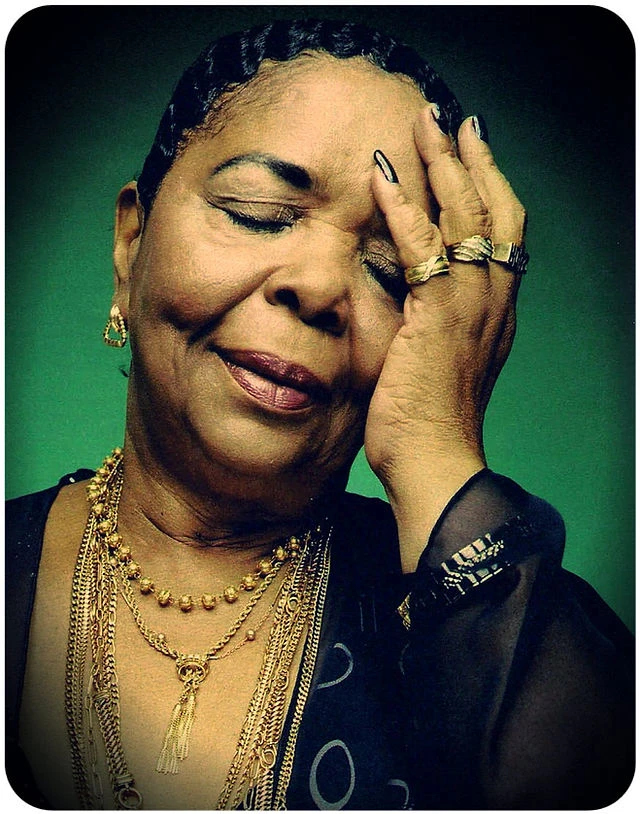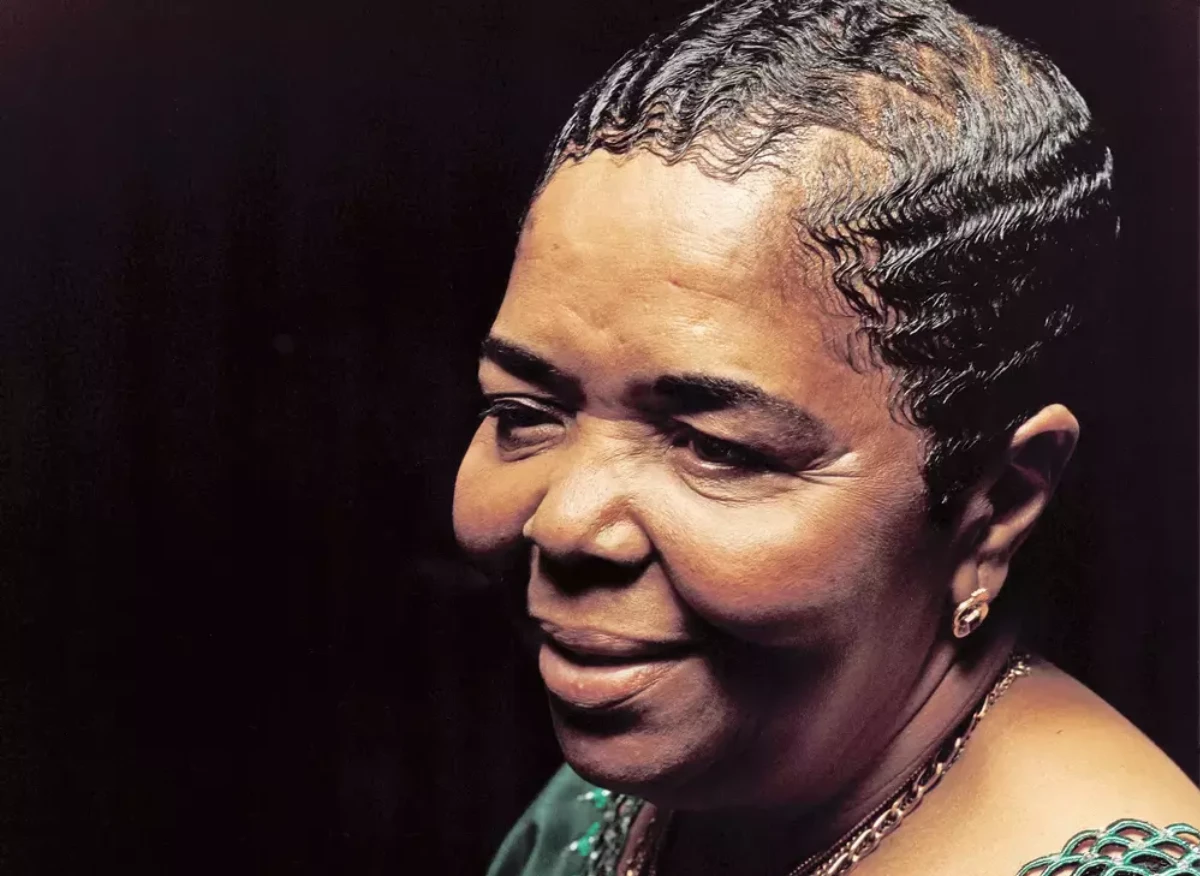Read to know about the life and career of Grammy-winning singer Cesária Évora, known as the "Barefoot Diva" for her morna music, personal struggles and musical breakthrough

Cesária Évora was a legendary Cape Verdean singer known for her soulful, morna music style. Often referred to as the "Barefoot Diva" due to her style of performing barefoot on stage. She gained international acclaim for her songs which always center around expressions of love, loss, and the island's history.
Born into poverty, Évora's music resonated deeply with the struggles and emotions of her people, the music she started as a very young girl at the age of sixteen in bars. Despite her humble beginnings, she became a global icon, captivating audiences with her raw talent and heartfelt performances.
Summary
- Cesária Évora is a legendary Cape Verdean singer, renowned for her soulful, melancholy voice and her barefoot performances.
- Known as the "Barefoot Diva," she gained international acclaim for her interpretation of morna, a traditional Cape Verdean music genre expressing love, loss, and the island's history.
- Despite a challenging upbringing, Évora's music resonated deeply with her people, making her a global icon.
- She has her personal struggles, as many times are seen on stage during intermission, drinking, and smoking, making her battle a heart attack, which later claimed her life.
Early Life and Education of Cesária Évora

Cesária Évora, the Cape Verdean superstar, emerged from humble beginnings. She was born on August 27, 1941, in Mindelo, Cape Verde, one of seven children. Her childhood was marked by hardship. Her father, Justino, a violinist, passed away when she was just a child, leaving her mother, Joana, a cook and a maid, to raise seven children alone. Unable to provide for her family, Cesária was sent to an orphanage at the tender age of ten.
At 16, she started a romantic relationship with a guitarist who advised her to perform in morna and coladeira, making her first appearances in bars to entertain people. Despite her early life challenges, she discovered a profound love for singing. However, due to her family's impoverished circumstances, formal education was a luxury beyond her reach. Life's hardships shaped her voice and imbued her music with a raw authenticity that eventually captivated the world.
Musical Beginnings of Cesária Évora
Évora began singing in local bars at the age of sixteen. Her raw talent and emotional depth resonated with audiences, and she quickly gained popularity within Cape Verde.
However, the music industry was not all kind to Évora regarding finances. The financial rewards of her early career were meager, and she faced the difficult decision of prioritizing her family's needs over her musical aspirations. To ensure the well-being of her children, she temporarily abandoned her singing career in 1970. She suffered from alcoholism, depression, and undernourishment, moving in with her mother. During this season, many of her fans began a collection fund to support her.
In 1985, Évora returned after the Organization of Cape Verdean Women asked her to travel to Portugal and contribute songs for an anthology album of women's music, Mudjer(Woman). While performing a tour in the United States, she was discovered by José da Silva, a French music producer. Her songs, often about love, loss, and the struggles of the Cape Verdean people, struck a chord with listeners worldwide.
Despite her immense success, Évora's health deteriorated in the late 2000s. A series of health issues, including a stroke and heart problems, forced her to make the heartbreaking decision to retire from music in 2011.
Évora's music was deeply intertwined with the experiences of the Cape Verdean people. Her songs often explored themes of Love and loss, as the Morna genre she mastered is characterized by its melancholic tone, and Évora's songs often reflected the complexities of love and the pain of separation, Nostalgia, and homesickness, conveying a profound longing for her homeland and the people she left behind as well as Social and economic hardships, making her songs often touched upon the challenges faced by the Cape Verdean people, including poverty and emigration.
Her music serves as a testament to the human spirit and the enduring power of music to connect people across cultures.
Cesária Évora personal life
Cesária Évora has her music career celebrated around the world, however her personal life was marked by challenges. Despite her public acclaim, Cesária Évora's personal life was relatively private. It is known that she married three times and divorced on all three occasions. From these unions, she had three children but only two survived to adulthood. However, specific details about her marriages, including names and dates, are not widely publicized.
Cesária Évora passed away on December 17, 2011, at the age of 70. The official cause of death was respiratory failure and hypertension. She had been hospitalized for several days prior to her passing due to respiratory problems, and reports have it that prior to her death, even while hospitalized, she was still drinking and smoking.
While her music left an enduring legacy, the private nature of Cesária Évora's personal life has meant that many details, particularly those related to her marriages and children, remain largely unknown to the public.
Cesária Évora's Legacy, Awards and Recognition
Évora’s music was more than just entertainment; it reflected the Cape Verdean spirit, its struggles, and its joys. Her songs carried the essence of the islands, their salty breeze, and the warmth of its people. By bringing Cape Verdean music to a worldwide audience, she not only achieved personal success but also elevated her country's cultural profile.
While Cesária Évora's greatest award might be the love and admiration of millions of fans worldwide, she also received numerous accolades throughout her career. Some of the most notable include:
In 1997, Évora won the KORA All African Music Awards for "Best Artist of West Africa" and "Merit of the Jury", and she won a third with Cabo Verde for "Best Album
She also received a total of six Grammy Award nominations, and she won the Grammy Award for Best Contemporary World Music Album in 2004 for her album Voz dámor.
To celebrate her further, she was made an ambassador of the World Food Programme in 2004, and she was declared a cultural ambassador by the government of Cape Verde and granted a diplomatic passport.
Évora significantly increased the global profile of Cape Verde and its music by bringing it to a global scene. Cesária Évora Airport in Mindelo was named after her in 2012, and the airport's entrance features a 3-meter (9.8 ft) tall statue of her.
Even after her passing, Cesária Évora's music continues to inspire and enchant listeners. Her legacy is a testament to the power of music to transcend borders and connect people. She is remembered as a true icon, a voice that carried the heart of Cape Verde to the world.
Final Thoughts
Cesária Évora, the "Barefoot Diva," was more than just a singer; she was a cultural ambassador who carried the soul of Cape Verde in her voice. Her music, a poignant blend of morna and coladeira, resonated deeply with audiences worldwide, transcending language and cultural barriers.
Her humble beginnings to international stardom, Évora's journey is a proof to the power of human spirit and the enduring magic of music. Her legacy continues to inspire new generations of musicians and fans, ensuring that the beauty of Cape Verdean music will live on for years to come.
Évora's music is a timeless treasure, a reminder of the power of human emotion expressed through song. Her voice, a gift from the islands, will forever echo in the hearts of those who have been touched by her artistry beyond her personal struggles.

